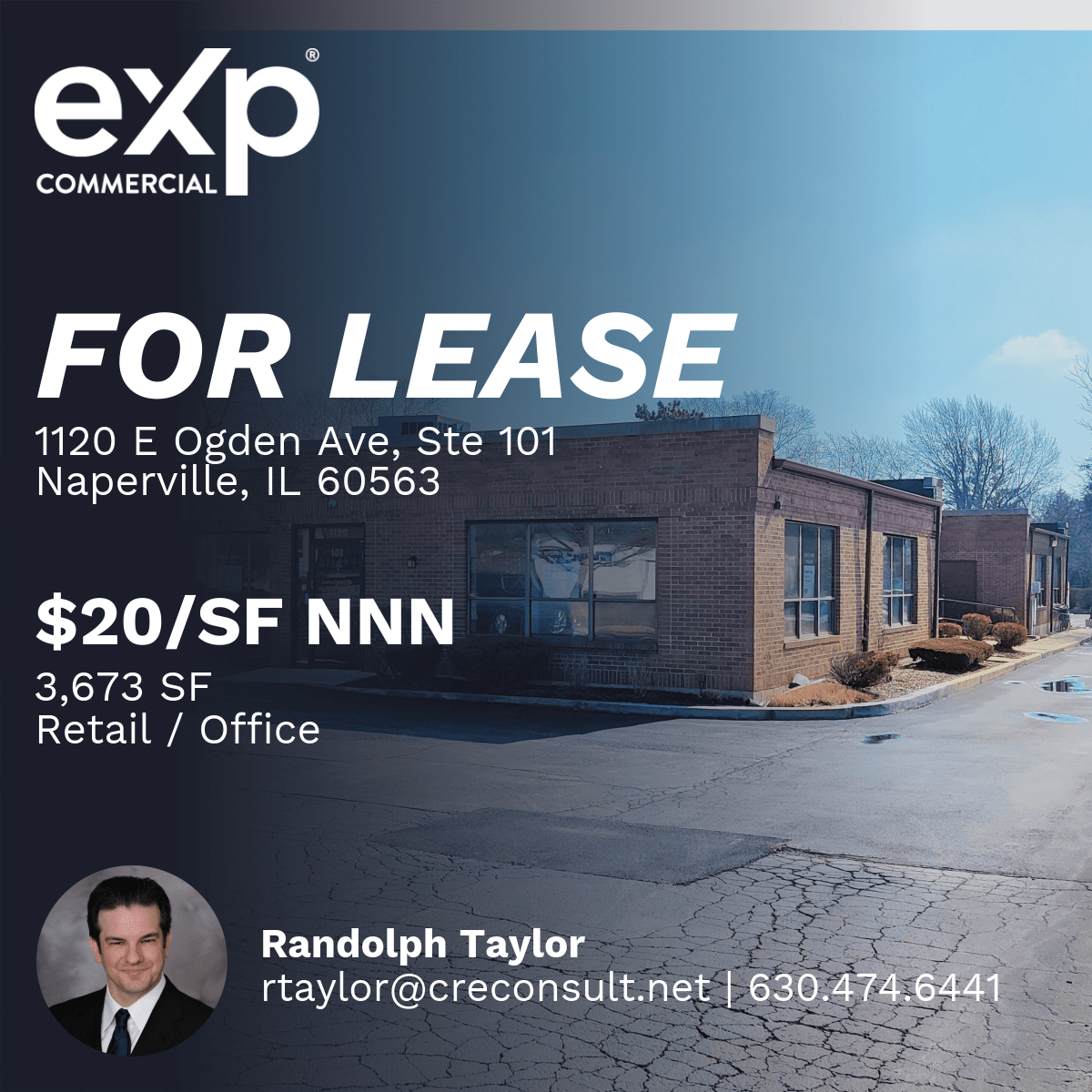
Today’s commercial mortgage rates
Commercial Mortgage Rates
Commercial mortgage rates constantly change, and updating live rates is often tricky. Several factors determine commercial real estate loan rates, but the most important factors are supply and demand. Retail real estate investors are constantly looking for properties that meet their investment criteria, and commercial mortgage lenders want to understand the property's risk/return profile for these property investments before making loans available.
How Frequently Do Commercial Mortgage Rates Change?
Commercial Mortgage Rates change every day because most lenders, particularly banks and credit unions, set their interest rates by "index" rates ultimately governed by national institutions like the United States Federal Reserve and the US Department of Housing and Urban Development ("HUD"). Commercial real estate loans involve more risk than government-backed bonds, so interest rates are usually at a premium or "spread" over the underlying financial indices. Commercial mortgage rates are also usually somewhat higher than residential mortgages, except for lower leveraged loans for the strongest borrowers.
Who sets commercial real estate loan rates?
Some commercial mortgage rates are based on the "prime rate" directly governed by Federal Reserve Board. Other commercial mortgages are pegged to US Treasury Bond Yields. Still, others have variable interest rates tied to indices like LIBOR or SOFR, which mirror the rates that financial institutions' own cost of borrowing funds in the global credit market. Commercial real estate loans are typically pegged to one of these economic indices with some added premium or discount, depending on risk.
How are Commercial Mortgage Rates used?
Commercial banks charge higher commercial mortgage rates and fees than residential properties because there's more inherent risk involved when it comes down to lending out large sums of money for investment purposes. The more incredible loan amount at stake may also require additional security measures from borrowers who need these loans, resulting in a more complex loan structure and potential recourse against the borrower's assets and property.
There are eight major commercial loan programs, each with a different range of rates. Retail real estate investors use current commercial mortgage rates to determine their cost of capital for a particular investment to see if it's worth investing in.
The current market conditions determine commercial loan rates, but there is a lot of back and forth with lenders to negotiate terms.
Commercial mortgages can be hard to obtain, especially for borrowers who don't have perfect credit, a high net worth, or a long track record in real estate investment.
Commercial mortgage rates change all the time because they're affected by several factors, such as:
- The current economic outlook affects consumer confidence (how much people plan to spend and invest). This also determines if banks need more liquidity.
- Federal interest rate changes often affect commercial mortgage rates closely after rising or falling since commercial loans can impact businesses' ability to participate in the local economy and create jobs at home.
- Increases or decreases in inflation since property investments are typically long-term assets.
Multifamily Investment Property Loans
Commercial mortgage rates apply to multifamily investment properties (like apartment buildings and mobile home parks) and commercial properties. Retail real estate investors can take out loans for these significant investments, and they have several options, such as fixed-rate or adjustable rates.
There are eight major commercial loan programs, each with a different range of rates. Retail real estate investors use current commercial mortgage rates to determine their cost of capital for a particular investment to see if it's worth investing in.
Fixed-rate loans offer a stable payment based on the original loan terms over a fixed period, usually between five years and thirty years. These set payments allow commercial property owners to pay off their debt on a predictable schedule that maximizes their cash flow or equity position.
Freddie Mac Optigo Commercial
One of the primary lenders for multifamily investments is US government agency Freddie Mac with their Optigo multifamily loan program. This loan program provides non-recourse commercial mortgages of $1 Million or greater for apartment buildings with stable occupancy and experienced managers.
Commercial Property Interest Rates
The average interest rate for commercial properties fluctuate based on current economic factors. The rates will also vary between various commercial property types. A few examples of commercial property types include:
Loans for property types with solid economic tailwinds typically command more favorable financing rates and terms. Multifamily and industrial properties are currently in high demand on the capital markets and will see some of the lowest interest rates. Lenders may see hotels, office buildings, and specific retail properties as more risky financial bets, so financing rates and terms may be less favorable.
- Office Buildings
- Hotels and other hospitality properties (motels, resorts, Airbnb rentals, etc.)
- Strip Malls
- Medical offices
- Grocery-anchored shopping centers
- Industrial properties like warehouses or factories
- Self-storage facilities
- Religious centers
- Hospitals
Loans for property types with solid economic tailwinds typically command more favorable financing rates and terms. Multifamily and industrial properties are currently in high demand on the capital markets and will see some of the lowest interest rates. Lenders may see hotels, office buildings, and specific retail properties as more risky financial bets, so financing rates and terms may be less favorable.
Top 11 Questions About Commercial Real Estate Loans
Here are some of the most frequently asked questions investors ask:
What qualifies as Commercial Real Estate?
Commercial real estate is any property where most of its use (generally at least 50%) falls under commercial or business usage. Commercial properties include office buildings, strip malls, hotels/motels, shopping centers, warehouses, etc. Commercial mortgages are available for all types of commercial properties.
Commercial mortgages also apply to Multifamily properties (apartments, mobile home parks, student housing, and senior housing) if the property comprises five or more residential units.
Why use a commercial real estate loan?
Commercial real estate loans can be used to acquire, develop, or refinance a commercial or multifamily property and are typically larger than residential mortgages. Much like buying a home with a consumer mortgage, a commercial mortgage allows the property owner to own and invest in the property with less cash than the total value of the property. Using a commercial mortgage with a low-interest rate to purchase a property can also boost an investor's financial returns.
What is an ARM Commercial Loan?
ARM stands for an adjustable-rate mortgage, also known as a Variable Rate. ARMs are often used when borrowers desire lower monthly payments in the short term but are willing to accept the risk of a higher interest rate. Commercial ARMs can be helpful for borrowers looking at several years of low commercial mortgage rates without taking on additional costs or restrictions of a fixed-rate loan, like a prepayment penalty.
Who controls Commercial Interest Rates?
The Federal Reserve and its members (or the central banks of various countries outside the US) highly influence commercial loan interest rates. Commercial real estate loans have been affected by The Fed's quantitative easing program, which has kept commercial bank lending rates near historic lows since 2012. This is an advantage because it makes borrowing cheaper than ever before while also helping businesses find qualified buyers with substantial capital available when buying properties.
How do Commercial Loan Rates Affect Investors?
The rates you receive directly impact how much you will cost to buy a property, impacting the key financial metrics such as your Cash Cash Return, Equity Multiple, and IRR.
How can you find the best commercial real estate rates?
There are thousands of commercial mortgage lenders in the United States. The most commonly known commercial lenders are banks and private lending companies. However, several other categories of lenders may be able to provide the most suitable commercial mortgage depending on the property type, size, location, and borrower's business plan.
Other types of commercial mortgage lenders include credit unions, life insurance companies, debt funds, government agencies (like Fannie Mae and Freddie Mac), and commercial mortgage-backed securities ("CMBS").
Soliciting quotes from multiple lenders interested in a commercial real estate asset is the most reliable way to find the best commercial mortgage rate.
How much is the typical down payment for a commercial mortgage?
Down payments for commercial real estate loans are typically between 20% and 50% and will vary based on the loan scenario. Down payments, also known as an investment's Equity Requirement, will be determined by location, type of asset, the experiborrower experience, and investment risk profile's typical minimum down payment for a commercial mortgage.
The minimum down payment for commercial real estate loans is usually around 20% of the purchase price.
What are the closing costs in commercial real estate?
Commercial real estate loans always have closing costs, some of which are regulated by law.
Closing costs include an appraisal, credit reports, real estate attorney fees, title insurance, and recording charges. Commercial mortgage borrowers are usually billed for the lender's real estate attorney, so be aware of negotiating small items in the loan documents that may not be worth revising.
What are the typical fees for a commercial mortgage?
Fees related to commercial mortgage origin may also be assessed at closing and added to the list of closing costs above. Some loans will also require payment of an application fee, an extension fee, or even an exit fee. The loan's Term Sheet will outline a complete schedule and explanation of fees before committing to take out the loan.
Commercial property investors may also be responsible for paying additional settlement agent or broker's commissions in addition to lender origination points (in other words - an upcharge added onto their interest rate).
What is Commercial Mortgage Debt Service Coverage Ratio?
The debt service coverage ratio ("DSCR") determines how much net income commercial real estate properties generate compared with their loan payment. Commercial mortgage debt service coverage ratios vary depending on property use, location, and other factors. Still, most lenders want at least 1.2 times monthly loan payments from total income.
This means that if your property generates an income of $120,000 per month, net of expenses, then a lender may provide a loan that costs up to $100,000 monthly in principal and interest payments.
Source: Commercial Mortgage Rates Update
[ux_html label="Request Financing Quotes from eXp Commercial's Capital Market Partner StackSource with over 1,000+ banks, debt funds and private equity firms in their network."] [/ux_html] https://www.creconsult.net/market-trends/commercial-mortgage-rates-update/



 [ux_text text_align="left"]
[ux_text text_align="left"]

